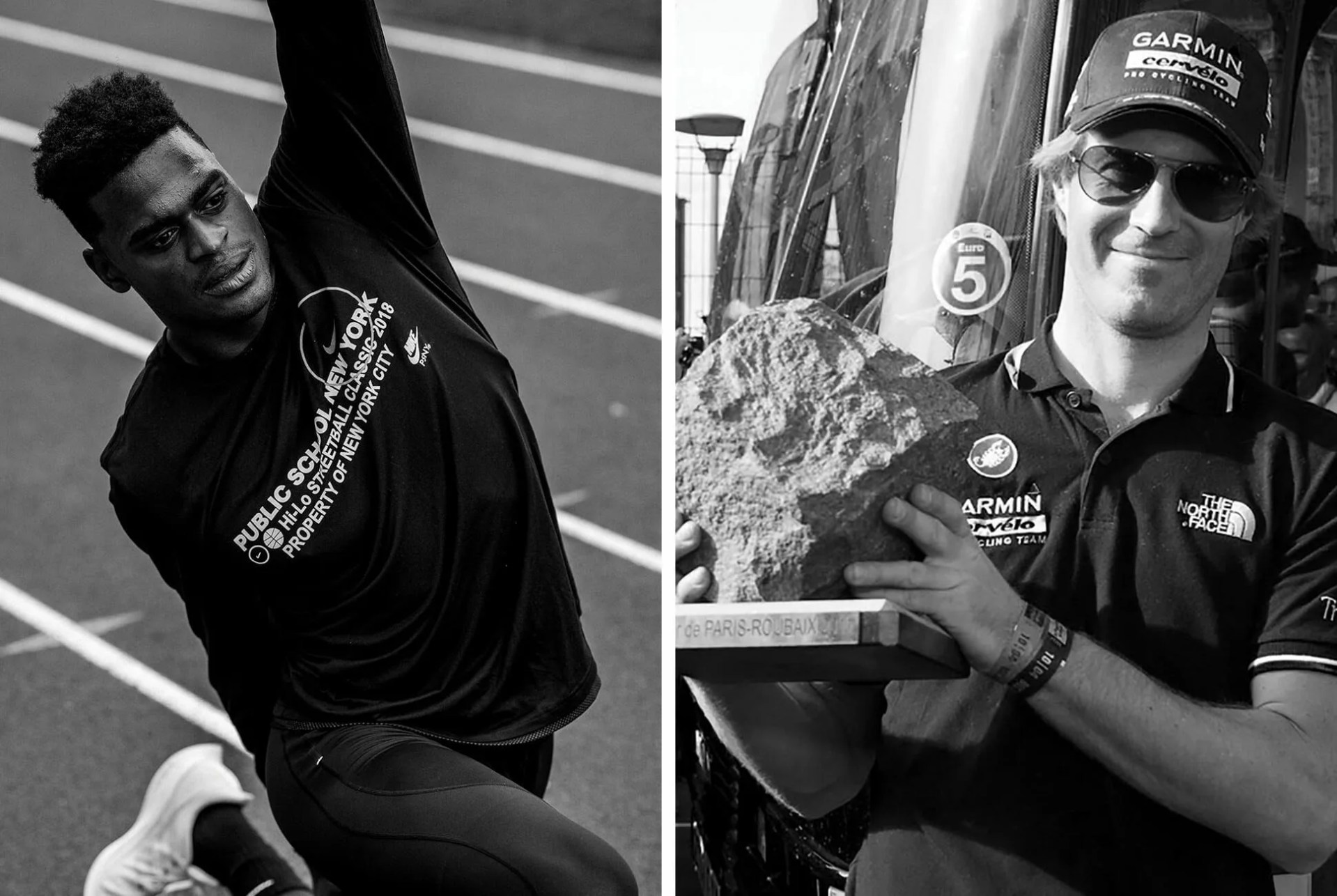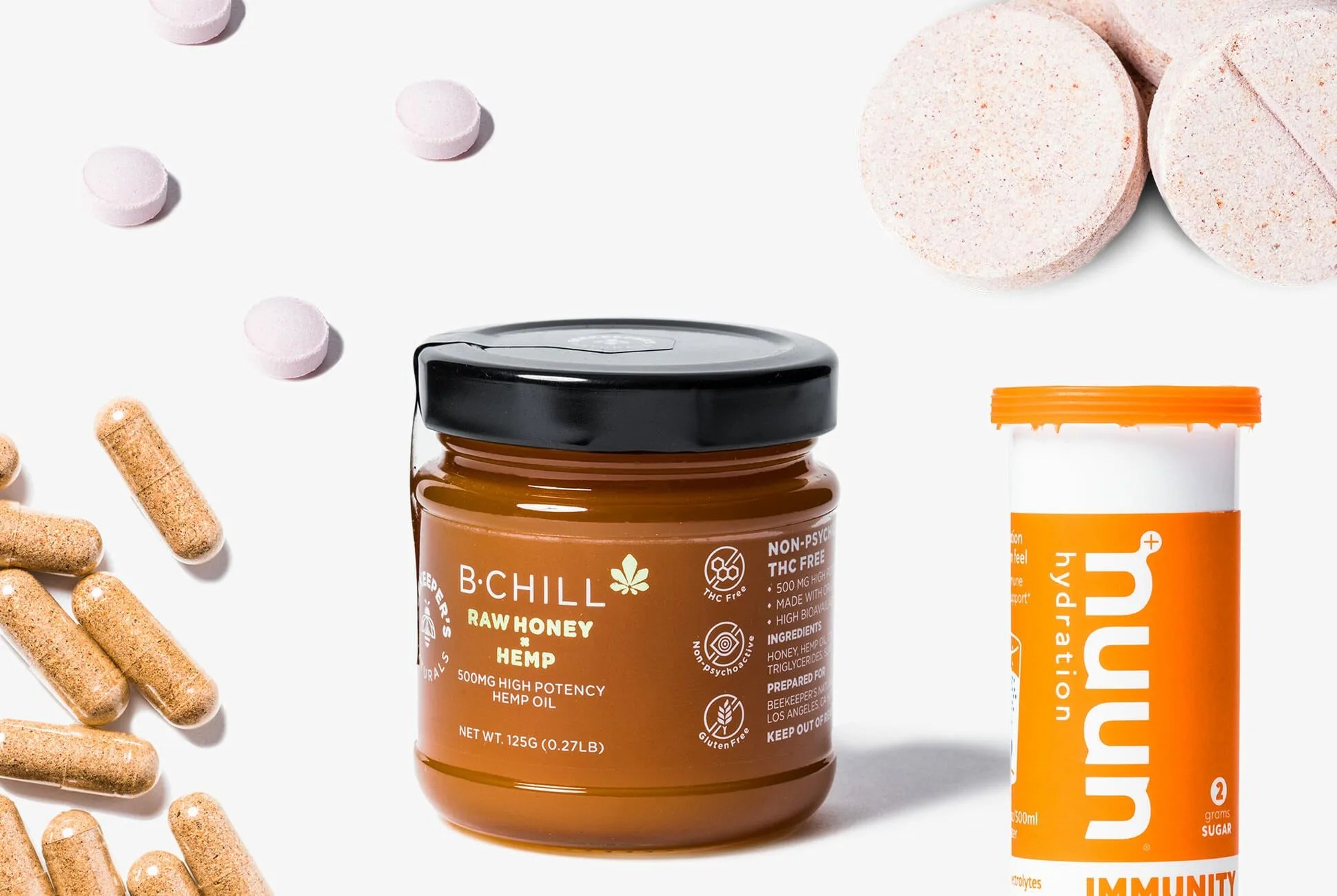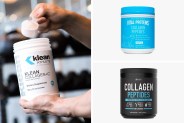MJ: When I look at supplements, I start with safety. We don’t want anything that’s not well researched and efficacious. The problem with CBD is there’s so much hype and noise. Before we started selling CBD, we said, We can’t rely on what the vendor’s telling us, even the most reputable vendors — we need to test all of them. The results are shocking. Of a hundred products we tested in the CBD space, less than ten percent were within five percent of what they said was in the product. And some were no more than olive oil or MCT oil.
JH: I have a buddy whose brand made me customized [CBD] blends. All his stuff is small-batch, he would test it and send me the actual numbers and what was in it. I noticed a difference using it. For me, it was all about sleep, anxiety and travel. Some topical delivery systems seemed to make a difference, especially around marathon training. But it does go back to what you were talking about earlier, when you send some of that stuff out to get tested and there’s nothing in it. It’s not that the active ingredient doesn’t work, it’s that the company isn’t giving you the supplement with the ingredient in it! It’s crazy.
In the past two years, you’ve seen changes in delivery systems, like with Amp lotions and Maurten hydrogel, but the core components of each have been around. Carbohydrates have been known to increase exercise performance since the Fifties. It’s not that this stuff has to be exceedingly new; the main issue is that nobody’s taking it right. The next big step in the industry is going to be increasing consumer knowledge about how to utilize them to maximum results.
MJ: Yeah, fifteen years ago sports drinks had tons of carbs in them and it was impeding people’s ability to hydrate, making them sick. They were falling apart. Maurten comes along, creates a product that starts out as a liquid and converts to a hydrogel as you drink it. The carbs — glucose, maltodextrin — are encapsulated into this gel that doesn’t digest in your stomach, it’s primarily digested in your small intestine. You don’t get sick to your stomach, you still get your hydration and you can take four to five times the amount of carbs than before. It’s like starting the second hour almost as fresh as you were in the first hour.
JH: The future of supplements is going to involve reconceptualizing what actual supplements are. It doesn’t have to be pills and powders. There’s a very interesting research study about female athletes eating a Mediterranean diet versus a Western standardized diet [for] four days leading up to a competition — the diet acted as a supplement, like a true ergogenic aid, to improve their 5K times.
MJ: I think the biggest thing with diet is reducing inflammation. I’m not surprised that a Mediterranean diet would lower inflammation markers.


